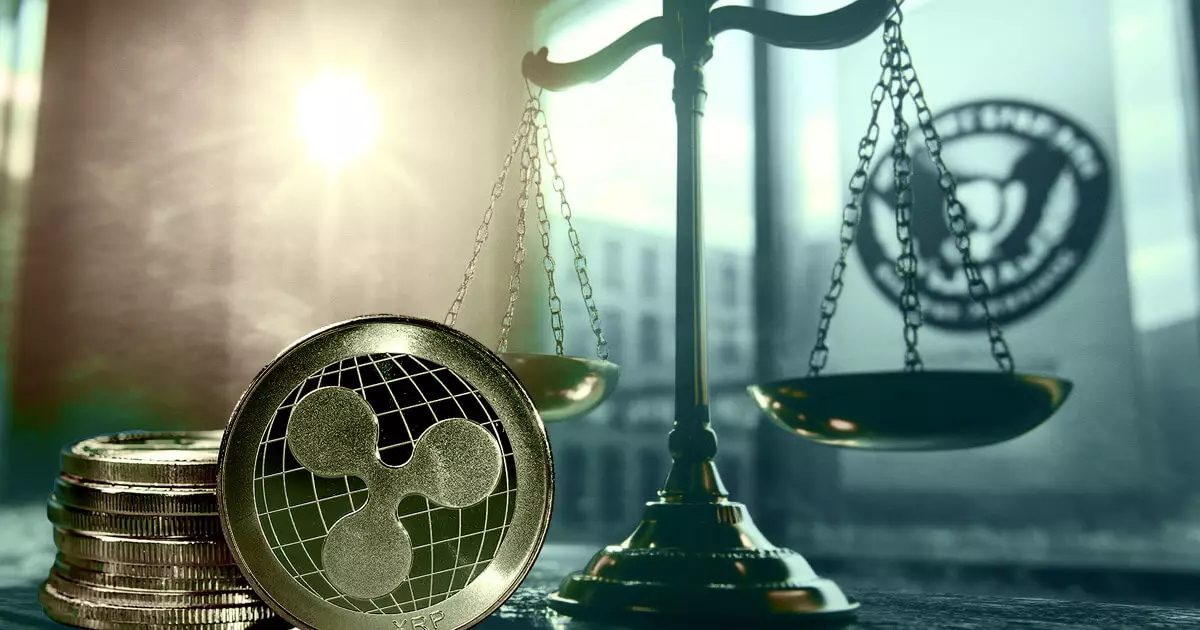The ongoing legal saga between Ripple Labs and the U.S. Securities and Exchange Commission (SEC) continues to take unexpected turns, particularly with the SEC’s recent filing of a Civil Appeal Pre-argument statement. This document signifies the commission’s intent to contest certain aspects of a prior ruling that has significant implications for Ripple and the broader cryptocurrency sector. Here, we explore the details of this legal confrontation, its implications, and the reactions from key stakeholders.
In 2022, U.S. District Judge Analisa Torres issued a ruling that partially favored Ripple in its battle against the SEC. The court concluded that Ripple’s sales of XRP to retail investors through digital asset exchanges did not constitute a violation of U.S. securities laws, a pivotal moment for the cryptocurrency market. However, the same ruling acknowledged that XRP sales to institutional investors breached regulatory guidelines, complicating Ripple’s stance. The SEC has since filed an appeal focused on the ruling’s more contentious elements, particularly regarding Ripple’s activities that extend beyond retail exchanges.
The SEC’s most recent Form C filing, made on October 17, does not dispute the ruling’s primary conclusion regarding retail transactions. Instead, it aims to challenge specific elements of Ripple’s operations—including its programmatic sales of XRP on trading platforms and distributions of XRP to employees and select parties. The agency has set its sights on Ripple’s co-founders, Brad Garlinghouse and Chris Larsen, claiming they played critical roles in allegedly facilitating these sales. This move indicates that the SEC’s strategy might be more focused on establishing precedents within the institutional market and addressing potential misconduct by Ripple executives, rather than contesting the more favorable aspects of the ruling.
A noteworthy facet of the SEC’s appeal is the request for the appellate court to review certain judicial decisions “de novo.” This legal term implies that the appellate court will consider the matter afresh, without deference to the original trial court’s conclusions. This approach has significant ramifications because it opens the door for the SEC to challenge the underlying legal arguments made by Judge Torres directly, rather than merely seeking to demonstrate an error in her judgment. If the appellate court decides to engage in de novo review, it may provide a more comprehensive interpretation of how cryptocurrency sales should be regulated under U.S. law.
Ripple’s Chief Legal Officer, Stuart Alderoty, has maintained a confident stance despite the SEC’s appeal. He underscored that the core ruling, which found XRP is not a security, remains intact and unchallenged by the SEC. Alderoty’s assertion suggests that Ripple is keen to capitalize on this legal win while navigating through the complexities of the appeal. The company has indicated its plan to submit a cross-appeal next week, which may bring additional arguments into the mix and could further complicate the legal landscape for the cryptocurrency industry.
The community has reacted with keen interest, pondering the implications of the SEC’s actions and the overall regulatory environment for cryptocurrencies. The ambiguity surrounding the future of XRP and similar digital assets remains a hot topic among investors, developers, and legal analysts alike. The discourse often highlights the growing necessity for a clearer regulatory framework that facilitates innovation while ensuring market integrity.
The outcome of this appeal could reshape not only Ripple’s future but also the regulatory landscape for the entire cryptocurrency sector. As the SEC continues to assert its mandate to regulate digital assets, crypto firms may need to adapt their compliance strategies accordingly. The Ripple case serves as a barometer for how regulators and the industry will interact moving forward; it challenges the old paradigms of security classification and opens conversations about the evolving nature of cryptocurrencies.
As Ripple navigates this intricate legal battle, the implications of the SEC’s appeal will resonate throughout the cryptocurrency domain. Stakeholders should prepare for a potentially drawn-out legal process that could redefine the regulatory frameworks governing digital assets. The lessons learned from this case will undoubtedly serve as guiding principles as businesses and regulators seek to strike a balance between innovation and oversight in the rapidly evolving world of cryptocurrencies.


Leave a Reply